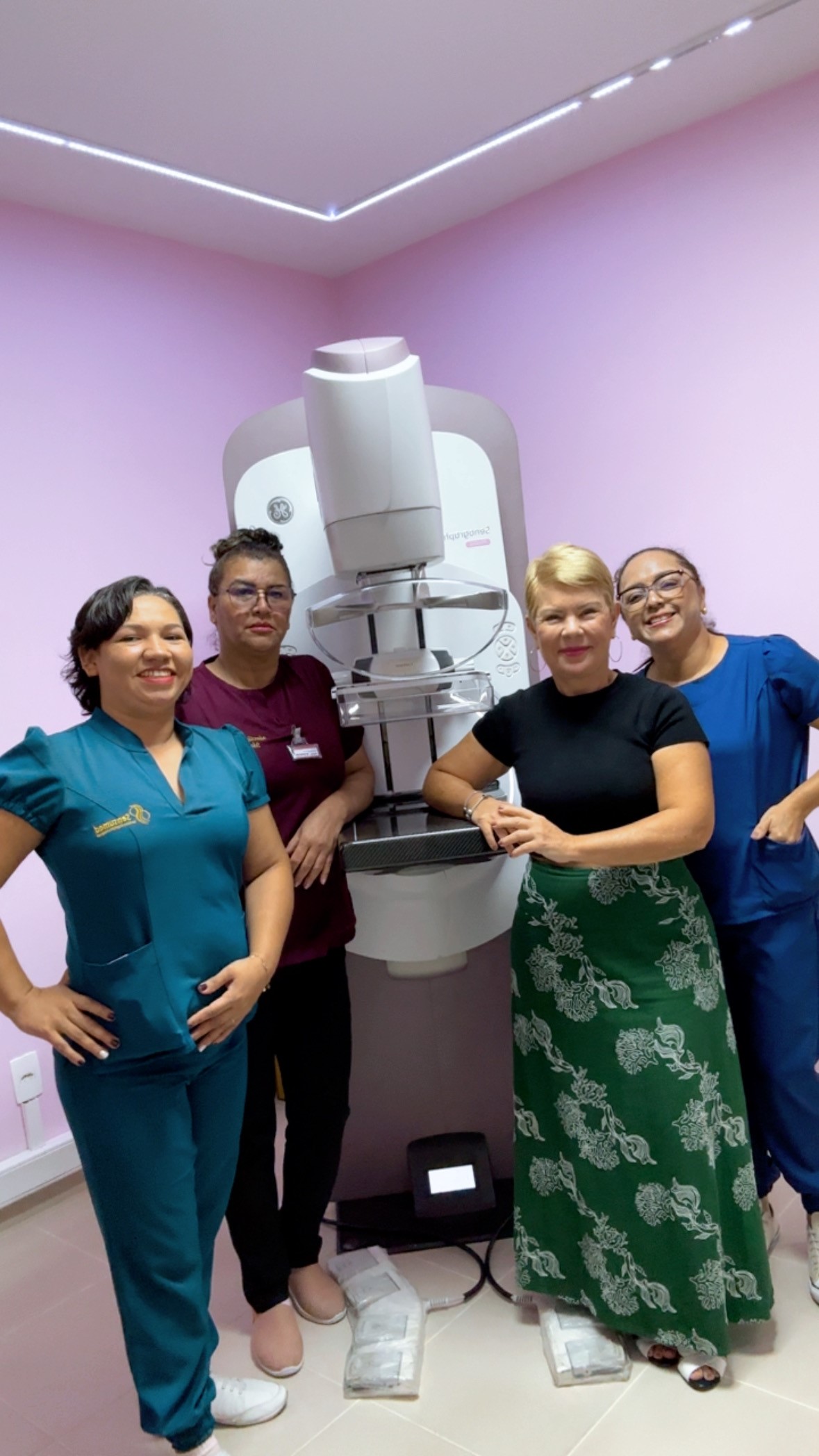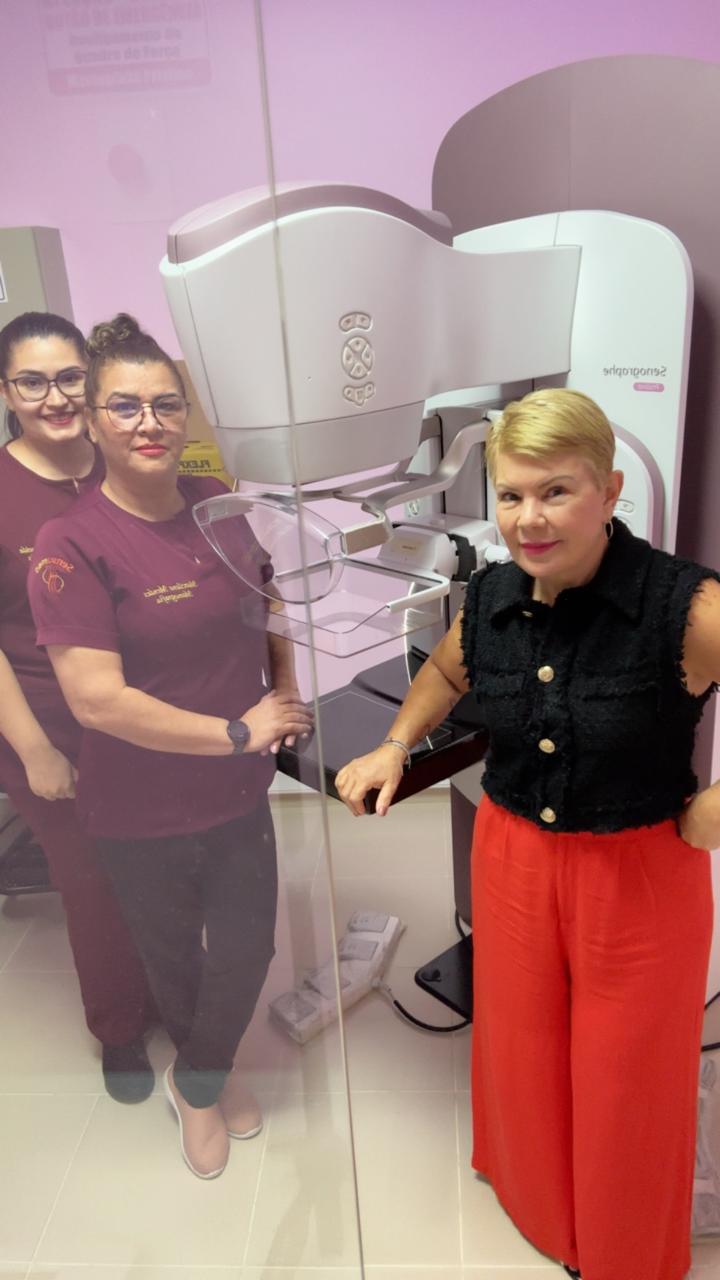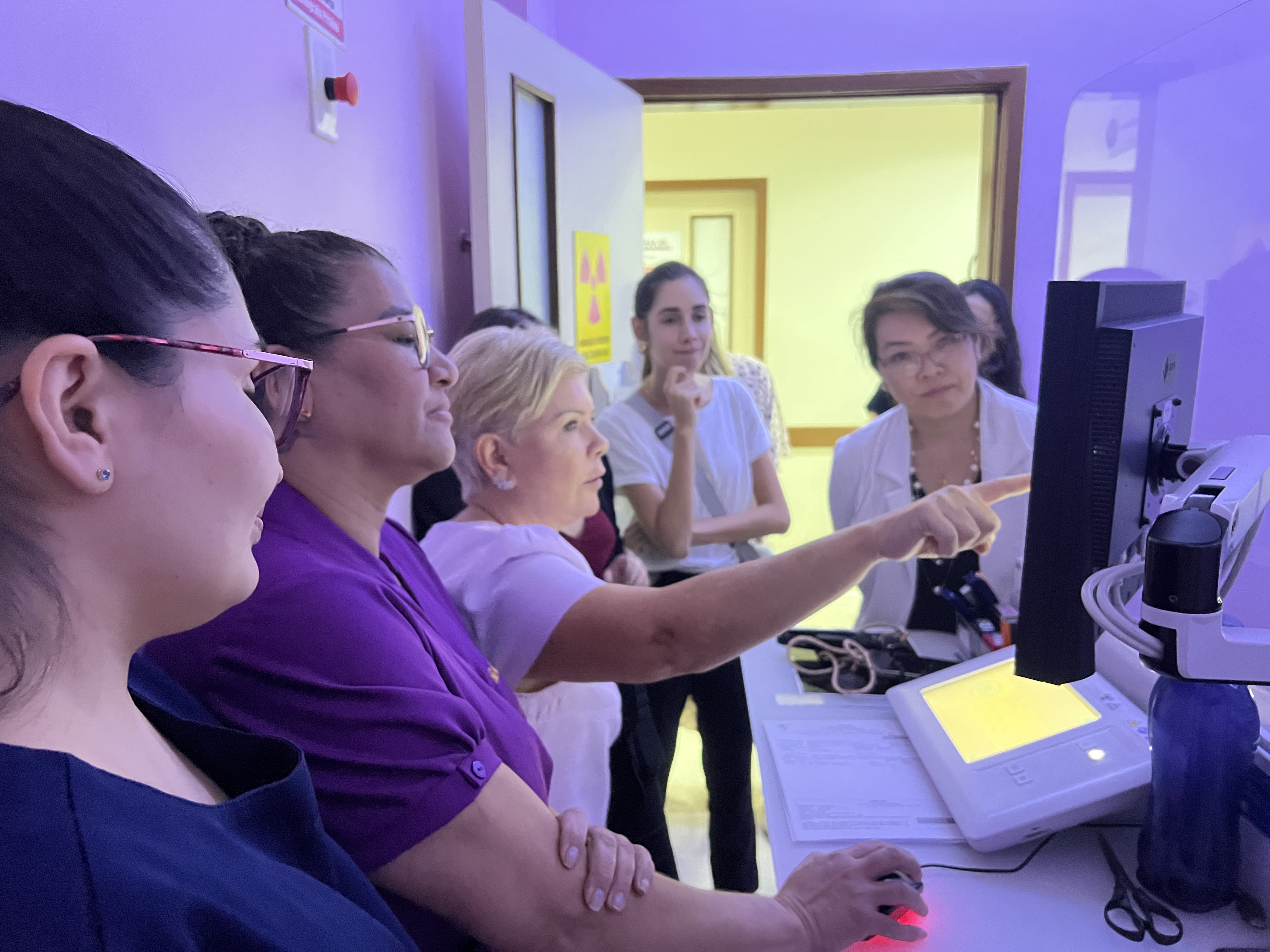When Tatiana Sales, of Manaus, Brazil, discovered something that felt like a small bone in her breast, she immediately went for a mammogram and, ultimately, a biopsy. Tatiana was lucky that she lived in the capital city of Amazonas state and had access to Sensumed, one of the few clinics in the region with digital mammography. Millions of other residents of the state, which is larger than Chile, Paraguay and Uruguay combined, must travel up to eight days by boat to reach the capital — and lifesaving medical diagnostics and treatment.
“Time and cancer, they walk side by side,” Sales says. “If I hadn’t been diagnosed at an early stage, maybe I wouldn’t be here.”
When it comes to breast cancer, the earlier the diagnosis, the better, because early treatments are easier on the body and more successful for extending life. That knowledge weighs on Dr. Sabrina Bianco, a breast cancer specialist at Sensumed, who sees more than 80 patients a day — and has to tell 30% of them they have breast cancer. The challenges she and her patients face are significant.
Obstacles to accessible care
Living far from the city, with no real transportation except on the river, means a significant number of people don’t come in for annual screenings. They tend to have more advanced cancers when they finally do make it in to see Dr. Bianco. Then there’s the lack of physicians. A city of around 2 million people, Manaus is the Brazilian municipality with the biggest Indigenous population and the capital of the Amazon, the largest tropical rainforest in the world. It is also home for Dr. Bianco, who was the first radiologist specializing in breast cancer in the state.
Dr. Sabrina Bianco (right)
She initially traveled to Manaus intending to stay for 20 days to help set up the region’s first breast center. Dr. Bianco ended up staying for 20 years, with no plans to return to Rio de Janeiro. She fell in love with the rainforest, which covers virtually the entire state of Amazonas, and its people, so she settled there permanently. She also wanted to ensure that women in the state had access to quality breast care, which is why she advocated for the region’s first mammography machine and then, in 2018, an upgraded digital imaging machine. Sensumed installed GE HealthCare’s Senographe Pristina mammography system, and now offers patients digital 3D imaging, mammography-guided biopsy and contrast mammography, among other services.
Patient-centered innovation
“When we installed the Pristina, it made a huge difference — the images it produces are such high quality. It’s easy to operate and easy to detect the lesions,” Dr. Bianco says. “It’s also much more comfortable for patients. There is compression, but the breast is not squeezed so strongly as in other machines.”
Speed and comfort are important for all patients, of course, but they can be especially critical in a place like Manaus. Far too many women must make a days-long journey to see physicians. Knowing they then must wait around even longer for imaging tests and results is often a barrier that’s too high to overcome, so they just stay home rather than seek lifesaving diagnostics and treatment.
Dr. Bianco is on a mission to eliminate anything that makes it harder for patients to come into her clinic for screening, diagnosis or treatment. She regularly trades mobile phone numbers with patients and sends texts to encourage them to come back for follow-up appointments. By establishing this personal connection with each of her patients, she’s able to send results and provide further explanations, and they are more encouraged to send her questions.
“I always save the contact info of patients. Sometimes I call and ask, ‘Why did you disappear? Come back and visit with me,’” she says. “It’s very difficult when you know they have cancer and need to be treated.”
Geovane Sá was one of those women. A regular screening turned up a lump that sent her to Sensumed for further testing, including another, more precise mammogram.
“Sometimes the general doctor detects something, but [their] mammogram is not so good, so we need to start everything over here,” Dr. Bianco says. “It’s important to be right, because it’s like a stab in the back to receive a cancer diagnosis.”
Shifting mindsets, saving lives
The Pristina scan confirmed that Sá had cancer, and she started treatment soon after. Now she’s better — and grateful for the early intervention. “Today, cancer does not have to be a death sentence, because there is a cure, but early diagnosis is everything,” she says. “It’s life.”
For Dr. Bianco, who wanted to be a doctor from the age of 5, taking care of patients is the fulfillment of a lifelong dream. Her mission, she says, is to encourage more women to come in for breast cancer screenings.
“I consider myself a person with good luck, because of all the opportunities I have had to work with the great doctors who taught me everything and to treat and care for my patients,” she says. “I know that mammograms save lives. If only I could get all the local women to come in for a mammogram.”
-
The information in this material is presented in a general way. Although it is intended that there are no inaccurate data, there may be different interpretations in this regard.
-
This information may be restricted in your country. Final product settings and features may differ from those shown in the photo/video.
-
Products mentioned in this material may be subject to government regulations and may not be available in all locations. The shipment and effective commercialization can be carried out only if the registration of the product has already been granted in your country. The products/technologies may have a fancy name different from the approved one; their commercialization will be carried out under the registered name.
-
GE HealthCare reserves the right to make changes to the specifications and features shown herein or to discontinue the product described at any time without notice. Contact your GE HealthCare representative for the most up-to-date information.
-
The client and/or healthcare provider has the exclusive responsibility to use its own independent medical and professional judgment in making clinical, medical or financial decisions. Nothing in this material is intended to be used to diagnose or treat a disease or condition.



